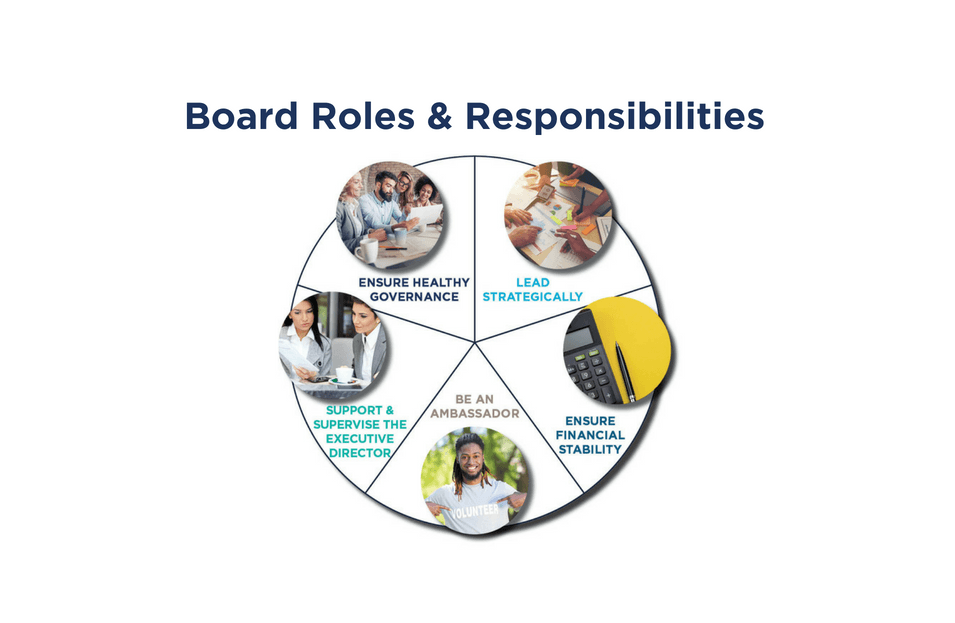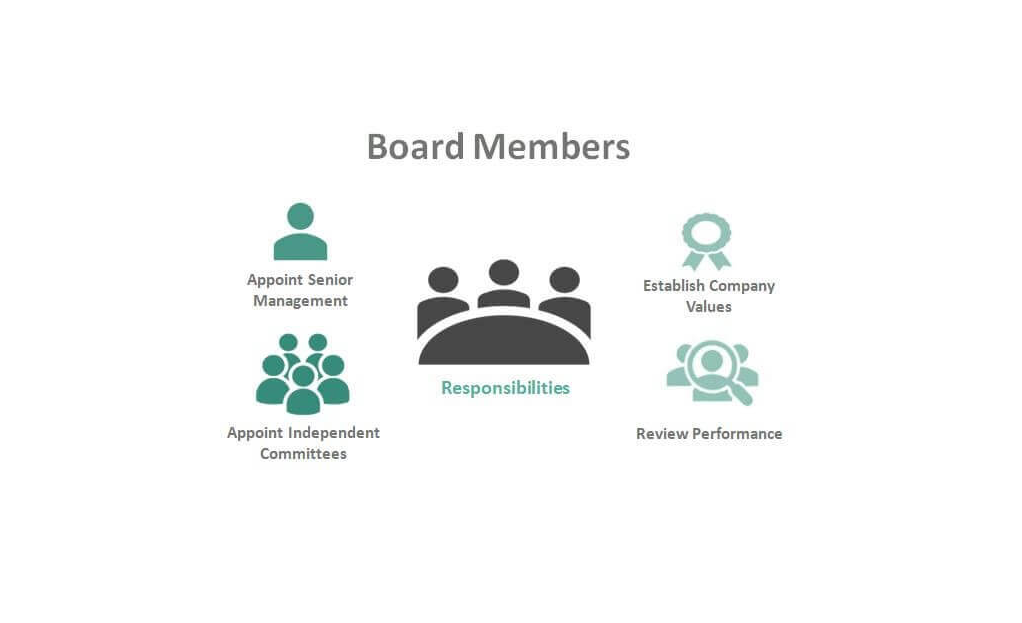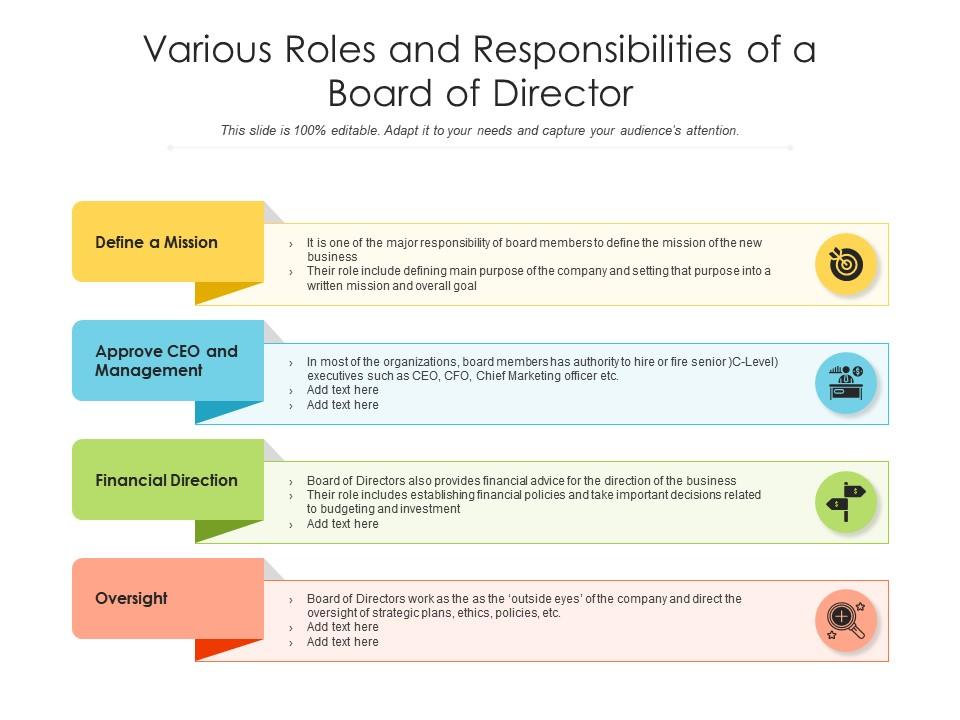
Are you aiming to take your professional trajectory to new heights? Discover how integrating specificBoard Roles To Boost Your Credentialsinto your careerjourney can significantly bolster your credentials. From strategic leadershippositions to advisory roles with impactful decision-making capacities, understanding and mastering these board roles is akin to unlocking a realm of possibilities for your professional growth. Gain insights into the intricacies of these roles, learning how they serve as a catalyst for career advancement, enhancing your skills, credibility, and influence within your industry.
Navigate the intricate landscape of board roles, seizing the opportunity to augment your credentials and differentiate yourself in the competitive professional sphere. Delve into this comprehensive guide that delineates actionable steps, illuminating the transformative potential of embracing specific board roles. Whether you're eyeing leadership positions, seeking advisory roles, or aiming to expand your influence, this exploration will equip you with the tools to harness the power of board roles.
Boost Your Credentials - 7 Dynamic Board Roles
Here are 7 dynamic board roles to boost your credentials:
1. ESG (Environmental, Social, And Governance) Committee Member
In today's world, companies are increasingly being held accountable for their environmental and social impact. As a result, there is a growing demand for board members with expertise in ESG issues. Serving on an ESG committee is a great way to gain valuable experience in this area and demonstrate your commitment to sustainability.
2. Technology And Innovation Committee Member
Technology is rapidly changing the way businesses operate, and boards are looking for members who can understand and implement new technologies. Serving on a technology and innovation committee is a great way to stay up-to-date on the latest trends and develop your expertise in this area.
3. Risk Management Committee Member
Risk management is a critical function for any organization, and boards are looking for members who can help them identify, assess, and mitigate risks. Serving on a risk management committee is a great way to develop your understanding of risk management principles and practices.
4. Audit Committee Member
The audit committee is responsible for overseeing the company's financial reporting process. Serving on an audit committee is a great way to gain exposure to financial accounting and reporting principles and practices.
5. Nominating And Governance Committee Member
The nominating and governance committee is responsible for identifying and recruiting new board members. Serving on a nominating and governance committee is a great way to develop your understanding of corporate governance principles and practices.
6. Compensation And Human Resources Committee Member
The compensation and human resources committee is responsible for overseeing the company's compensation and benefits programs. Serving on a compensation and human resources committee is a great way to gain exposure to human resource management practices.
7. Special Committee Member
Special committees are formed to address specific issues, such as mergers and acquisitions or litigation. Serving on a special committee is a great way to develop your expertise in a particular area and demonstrate your ability to handle complex issues.
In addition to serving on committees, there are a number of other ways to boost your credentials for board service. These include:
- Attending board development programs
- Networking with other board members
- Volunteering your time to non-profit organizations
- Staying up-to-date on businessand industry trends
Writing A Board Of Directors Resume
Writing a compelling resume for a board of directors position requires a strategic approach that highlights your relevant experience, skills, and accomplishments. Here's a step-by-step guide to crafting an impressive board of directors resume:
1. Tailor Your Resume to the Specific Board Role - Carefully review the board position description and identify the key qualifications and experience they seek. Tailor your resume to align with these requirements, emphasizing your most relevant achievements and contributions that match the board's priorities.
2. Emphasize Strategic Leadership and Governance Experience - Highlight your ability to provide strategic guidance, oversight, and decision-making at the board level. Showcase your experience in developing and implementing strategic plans, managing risk, and ensuring corporate governance compliance.
3. Demonstrate Financial Acumen and Industry Expertise - Demonstrate your understanding of financial concepts, principles, and analysis. Emphasize your experience in reviewing financial statements, evaluating investment opportunities, and assessing financial risks. Showcase your knowledge of the specific industry or sector relevant to the board position.
4. Quantify Your Accomplishments - Quantify your achievements using metrics and data whenever possible. This provides concrete evidence of your impact and contributions. For instance, instead of stating "increased revenue," quantify it as "increased revenue by 20% in two years."
5. Highlight Relevant Skills and Expertise - Identify and emphasize the specific skills and expertise that align with the board position's requirements. This may include skills in strategic planning, financial analysis, risk management, leadership, communication, and negotiation.
6. Showcase Board Experience and Committee Roles - If you have prior board experience, prominently highlight your involvement, including the specific committees you served on and any notable accomplishments or contributions. This demonstrates your understanding of board dynamics and responsibilities.
7. Emphasize Professional Affiliations and Recognition - Mention any relevant professional affiliations, memberships, or awards that demonstrate your expertise and recognition within your industry or professional circles. This adds credibility to your profile and reinforces your suitability for the board position.
8. Tailor Your Resume to the Company Culture - Research the company's culture, values, and mission statement. Align your resume's language and tone to reflect your understanding of their ethos and demonstrate your fit within their organization.
9. Proofread and Edit Thoroughly - Ensure your resume is free of grammatical errors, typos, and inconsistencies. A polished and professional resume reflects your attention to detail and enhances your overall presentation.
How To Gain An Appointment To A Board Of Directors?
Gaining an appointment to a board of directors requires a combination of strategic planning, targeted networking, and a compelling personal brand. Here's a comprehensive guide to help you navigate this process:
1. Develop A Strong Personal Brand
- Engage in Industry Thought Leadership-Contribute to industry publications, speak at conferences, or participate in online forums to establish yourself as a thought leader in your field.
- Build a Strong Online Presence -Maintain an updated and professional LinkedIn profile, showcasing your experience, expertise, and involvement in relevant professional organizations. Consider creating a personal website to further establish your online presence.
- Craft a Compelling Executive Summary -Create a concise and impactful summary of your professional background, highlighting your key skills, experiences, and accomplishments.
2. Identify Target Boards
- Leverage Networks and Relationships -Tap into your existing professional network to identify individuals connected to target boards. Seek their insights and guidance on potential opportunities.
- Understand Board Composition -Analyze the current board composition, including the directors' backgrounds, expertise, and tenure. Identify potential gaps or areas where your unique skills could add value.
- Research Companies and Industries -Focus on companies and industries where your skills and experience are most relevant and where you can make a significant contribution.
3. Attend Industry Events And Networking Opportunities
- Volunteer for Non-Profit Boards -Consider gaining board experience by volunteering for non-profit organizations. This demonstrates your commitment to serving on boards and allows you to develop your board skills in a less competitive environment.
- Join Relevant Professional Organizations -Participate in professional organizations and associations related to your industry or target boards. Actively engage in committee work, events, and leadership opportunities to increase your visibility and network.
- Engage in Strategic Networking -Attend industry events, conferences, and seminars to connect with potential board members, recruiters, and other influential individuals. Build meaningful relationships and cultivate a strong reputation within your industry.
4. Prepare Compelling Board Materials
- Compile Supporting Materials -Prepare additional materials that showcase your expertise, such as white papers, articles, or presentations you have authored or been involved in.
- Develop a Persuasive Board CV -Create a comprehensive and well-structured board CV that clearly outlines your professional background, board experience, skills, accomplishments, and contributions.
- Craft a Tailored Cover Letter -For each board application, write a personalized cover letter that highlights your specific qualifications and demonstrates your understanding of the company's needs and challenges.
5. Engage With Nominating Committees And Recruiters
- Express Your Interest Directly -Don't hesitate to directly contact companies that you believe align with your expertise and interests. Express your interest in board service and inquire about potential opportunities.
- Build Relationships with Recruiters -Develop relationships with executive search firms and board placement consultants specializing in your industry. Inform them of your interest in board opportunities and keep them updated on your career progression.
- Identify Nominating Committee Members -Research and identify the individuals responsible for board nominations at your target companies. Connect with them on LinkedIn or through mutual contacts.
What Roles Do You Need On A Board?
The specific roles on a board will vary depending on the organization's size, structure, and mission. However, there are some core roles that are common to most boards. These roles include:
- Chairperson -The chairperson is the leader of the board and is responsible for setting the agenda for board meetings, presiding over meetings, and ensuring that the board is functioning effectively.
- Vice-chairperson -The vice-chairperson assists the chairperson and takes over their duties if they are unable to serve.
- Treasurer -The treasurer is responsible for overseeing the organization's finances, preparing financial reports, and developing and implementing financial policies.
- Secretary -The secretary is responsible for taking minutes of board meetings, keeping track of board records, and ensuring that the board is complying with all legal and regulatory requirements.
Importance Of Board Roles In Credential Enhancement
Serving on a board of directors can significantly enhance your credentials and professional reputation. Here are some of the key benefits of board involvement:
- Personal Satisfaction and Accomplishment -Serving on a board can bring a sense of personal satisfaction and accomplishment, knowing that you are contributing to the success of an organization and making a positive impact.
- Contribution to the Community and Industry -Board service allows individuals to contribute their expertise and make a positive impact on the company, industry, or community they serve. It provides a sense of purpose and fulfillment.
- Career Advancement Opportunities -Board experience can lead to new career opportunities and enhance your marketability to potential employers or clients. It demonstrates your readiness for senior leadership roles and strategic decision-making responsibilities.
- Personal and Professional Growth -Board involvement fosters personal and professional growth by exposing individuals to diverse perspectives, challenging them to think differently, and expanding their knowledge base.
- Governance and Leadership Development -Board service provides hands-on experience in corporate governance, risk management, and strategic decision-making. It enhances leadership skills, decision-making abilities, and strategic thinking.
- Strategic Insights and Industry Knowledge -Board members gain valuable insights into the strategic direction, challenges, and opportunities of the company they serve. This exposure keeps them abreast of industry trends and enhances their overall businessacumen.
- Expanded Network and Relationships -Board service provides access to a network of influential individuals, including executives, industry leaders, and other board members. These connections can open doors to new opportunities and collaborations.
- Enhanced Credibility and Recognition -Serving on a board demonstrates your expertise, leadership abilities, and commitment to the industry or sector. It positions you as a respected thought leader and industry expert.
Frequently Asked Questions About Board Roles To Boost Your Credentials
What Are The Three Main Roles Of The Board?
A board of directors has three formal responsibilities. They are to oversee the management of the company, to approve corporate strategy, and to make sure the financial statements are accurate. In order to do these things, they need to be able to understand financial statements and have knowledge of business law.
What Are The Five Roles Of The Board Of Directors?
Recruiting, supervising, retaining, evaluating and compensating the CEO or general manager are probably the most important functions of the board of directors. Value-added business boards need to aggressively search for the best possible candidate for this position.
What Is The Role Of Board Vs Staff?
Dividing Duties Between Board and Staff The chief executive reports to the board and other staff hired later on report to the chief executive. The structure defines accountability but everyone working together for the same objective is what makes these partnerships succeed.
Conclusion
Board roles stand as pivotal opportunities for professionals seeking to bolster their credentials and make a substantial impact within their industries. The multifaceted nature of these roles, whether in executive positions, advisory capacities, or nonprofit governance, presents a dynamic landscape for career growth and skill enhancement. Embracing these roles isn't merely about titles; it's about assuming responsibilities that shape industries, drive organizational success, and fortify one's professional identity.
As demonstrated throughout this exploration, the impact of board roles extends far beyond the boardroom. They serve as catalysts for leadership development, offering unparalleled opportunities to expand networks, refine expertise, and elevate personal brands. By actively pursuing and excelling in these roles, individuals can solidify their credibility, position themselves as thought leaders, and carve a trajectory marked by influence and achievement.


